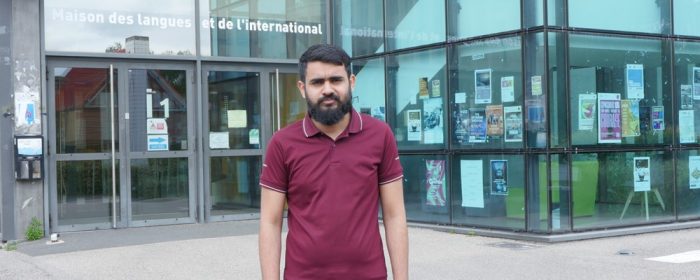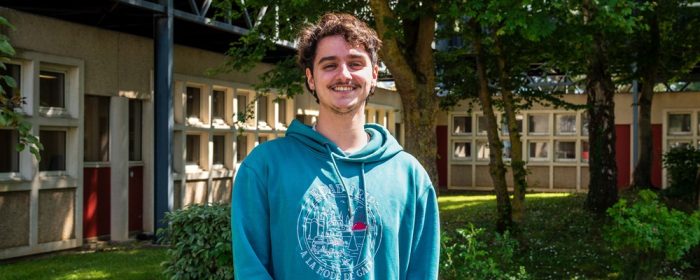Involving the public – citizens from all walks of life – alongside researchers in the production of scientific knowledge. This approach, known as “participatory research”, is at the heart of the University of Caen Normandy’s SAPS (science for and with the society) action programme. But what is meant by “participatory research”? The University of Caen Normandie has decided to take a step back for a conference, to continue the work of definition and analysis, because participatory research encompasses a wide variety of forms and practices. Interview with Pauline Landel, doctor of political science and SAPS project manager.
Why organise this conference on participatory research?
For over two years now, the Ministry has been implementing a strategy to promote science “with and for society”, with the aim of increasing interaction between the scientific community and civil society. The University of Caen Normandie will be one of the very first institutions to be awarded the SAPS label in November 2021, thanks to a structuring partnership with Le Dôme around joint actions to promote the co-construction, sharing and promotion of scientific knowledge. This context of institutionalisation prompts us to take a step back and try to analyse and define what really makes a participatory research approach – its practices, methods, systems, objectives and results.
What is the aim of this conference – the first of its kind in France?
The term may seem new, but participatory research has actually been developing since the 1970s and 80s, in a wide variety of forms and arrangements. The aim of this conference is to provide a forum for meetings and discussions between different networks of players involved in participatory research programmes, as well as between different disciplines and different points of view. How can scientific knowledge be produced with and for society? How can we mobilise the public? How can robust data and knowledge be produced? What underpins the scientific nature of participatory approaches? These questions raise legitimate issues – sometimes even debates and tensions – that we need to address and understand in a shared way. The idea is to provide a framework for reading existing approaches and experiments, so that we can take stock of the situation and help each and every one of us to find our bearings. And, why not, help new collaborations to emerge.
The programme leaves plenty of room for discussion, in a variety of formats. What’s in store for the 170 participants?
The symposium opens with an inaugural lecture by Baptiste Godrie, Professor of Sociology at the University of Sherbrooke (Canada), whose latest work analyses the genesis of certain participatory research approaches and methods and sheds light on the plurality of epistemologies, theories and methods. The aim is to consider the development of what he and others call a ‘new ecology of knowledge’, a new way of organising the complementarity of knowledge between science and citizens or the public. Several speakers from major French research institutes such as INSERM and INRAE will be sharing their experiences and experiments. The conference will also welcome the partners of the European AcrossEU consortium, and will be an opportunity to highlight the SAPS initiatives of the University of Caen Normandie – with the presence of Frédéric Naudon, winner of the UNICAEN Science & Société 2022 prize, the intervention of Frédérick Lemarchand, professor of sociology and head of scientific projects on ecological transitions, and the discovery of the playful methodologies promoted by the CEMU and Le Dôme as tools for participation in science. The programme will be structured around a number of workshops in small groups to encourage direct exchanges and feed into professional practices. All in a friendly, participatory atmosphere!
To find out more
“Participatory research: knowledge and recognition”
from 22 to 24 November 2023
université de Caen Normandie | Caen – campus 1 – building B





